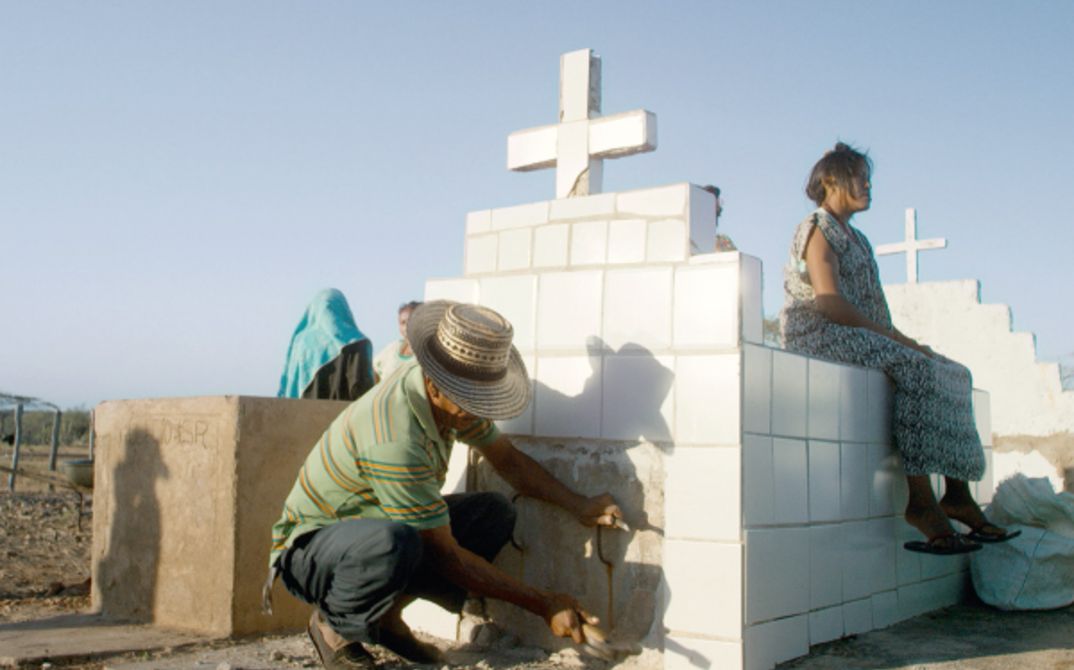“Amülouliis pia?”
This is the first sentence we hear in Lapü. This is the sentence which reaches the ears of Doris, the protagonist of the film, from a location unclear.
Just as various sequences in the film pick up on and reinterpret elements from Doris’s dreams, this question, which translates as “Are you lost?”, also existed already in one of her dreams before ever becoming part of the film. This question expresses the same feeling that both she and the entire team experienced during the shoot. We were confronted for the first time with a new way of relating to death, with uncertainty and a lack of comprehension being the feelings we shared across those days spent in the desert. Shooting the film didn’t just become a way of trying to grasp what we were shooting, but also a way of relating to the questions and feelings we shared, an opportunity to engage with questions and images provoked by the state of loss and the desire to find it.
Later on in the film, Doris asks her grandmother in Wayuu what this loss means. It’s once again as if Doris isn’t just speaking for herself, but rather expressing a collective feeling on the part of everyone making the film: in the end, films are strange living organisms that contain a multitude of experiences and doubts stemming from those who make them. Our relationship with Doris reacted to this feeling of being lost, entering almost imperceptibly into the acting and the improvisation as we remained open to mistakes and to chance, with the sense of doubt and uncertainty that death carries thus becoming a driving force in the process.
Bringing the dead back to life was casual, serious and in turn a game of sorts. A game whose rules we were never able to fully grasp, a game in which the question of how to feel the other remains undying, a space in shadow, an impossible translation.
César Jaimes and Juan Pablo Polanco's debut film Lapü was made in close collaboration with its protagonist Doris Gonzalez Jusayu, a Wayuu from the Juajira Desert in Colombia.
